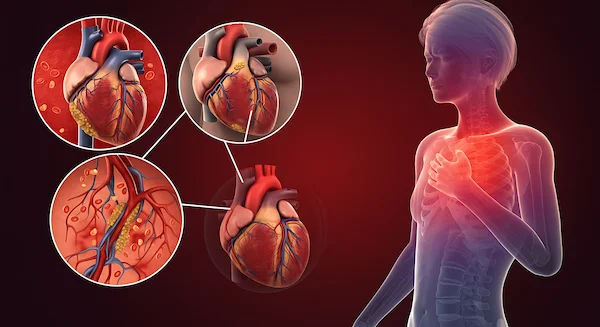- male
- 50 Years
- 29/01/2025
I've been having an abnormal heart rate for the past month, consistently between 90 and 110. I was on high blood pressure medication but stopped taking it two months ago based on my doctor's advice. They told me to keep an eye on my blood pressure, but I'm worried about whether my heart rate is something to be concerned about. Should I be seeing any changes, or is this normal after stopping the medication?
Answered by 1 Apollo Doctors
It is important to monitor your blood pressure regularly, especially if you have a history of high blood pressure. Since you are experiencing an abnormal heart rate, it is crucial to manage your blood pressure effectively. You can monitor your blood pressure at home using a digital blood pressure monitor. If your blood pressure remains consistently high, your doctor may recommend restarting your high blood pressure medication. In the meantime, it is important to stay hydrated, maintain a healthy diet low in sodium, and engage in regular physical activity to help manage your blood pressure.
Dr. Anshul Suggests...
Consult a Cardiologist
Answered 04/07/2025
0
0

More Cardiology Health Queries
View allI've been feeling these twitching sensations in my chest for about 11.5 months now. It's like a really minor shock or spasm right in the center but a bit below my chest, and they last for less than a second. It used to happen less often, but in the last few days, it's been like 5 or 6 times a day, if not more. I've never felt anything like this before. I should probably mention I smoke, but not too heavily, and I've decided to quit after feeling these twitches. I used to go to the gym regularly before I quit a month ago, and I don't think I had this issue when I was lifting weights. I've also noticed that these twitches happen more if I haven't eaten or slept for a while, though that might just be a coincidence. It's stressing me out and making me really uncomfortable. Any ideas on what could be causing this or what I should do?
Visit your Physician for appropriate management
Answered by 1 Apollo Doctors
I'm really worried about my brother Jiten, who was in the cardiac care unit recently. He's just 28 and now that he's home, his blood pressure keeps dropping in the evening, and he starts vomiting. After that, his skin turns pale and he experiences pain in his right calf. I'm also noticing that he's coughing a bit. The hospital stay was stable after his procedure with the AICD implant, but I'm worried about these symptoms popping up. His meds include things like concor, aldactone, and levoflox among others. Could you advise on what might help him recover better and keep these symptoms in check?
To address the symptoms of low blood pressure, vomiting, pale skin, calf pain, and cough, the following adjustments can be made to the medication regimen: 1. **Low Blood Pressure and Vomiting**: Given the symptoms of low blood pressure and vomiting, it is important to review the medications that may be contributing to these side effects. In this case, Dytor 10mg (Torsemide) is a diuretic that can lower blood pressure and cause electrolyte imbalances leading to vomiting. It may be advisable to reduce the dosage of Dytor or consider an alternative diuretic. 2. **Pale Skin and Calf Pain**: The symptoms of pale skin and calf pain could be indicative of poor blood circulation. To address this, it is important to ensure adequate hydration and blood flow. Aldactone 25mg (Spironolactone) can sometimes cause electrolyte imbalances leading to symptoms like calf pain. Monitoring electrolyte levels and adjusting the dosage of Aldactone may be beneficial. 3. **Cough**: If the cough persists, it may be related to heart failure or respiratory issues. Dapaone 10mg (Dapagliflozin) is a medication used to treat heart failure. However, if the cough is persistent and bothersome, a review of the medication regimen and potential respiratory evaluation may be necessary. 4. **Overall Recommendation**: Considering the symptoms described, it may be beneficial to consult with the healthcare provider who prescribed the medications. Adjustments in medication dosages or alternative medications may be necessary to address the symptoms of low blood pressure, vomiting, pale skin, calf pain, and cough effectively. Please note that any changes to the medication regimen should be done under the supervision and guidance of a healthcare professional. Regular monitoring and follow-up with the healthcare provider are essential for optimal management of these symptoms.
Answered by 1 Apollo Doctors
I'm a bit concerned about my cholesterol levels. My total cholesterol is 217, triglycerides are 163, HDL is 48, and LDL is 145. My weight is 85 kg and I'm 5'10". Do you think I should start medication for cholesterol, or would simply making some lifestyle changes be enough?
Based on your cholesterol levels, medication may be required in addition to lifestyle changes. To lower your LDL cholesterol level of 145, you can start taking Atorvastatin 20mg once daily. Along with this, it is important to make lifestyle changes such as following a healthy diet low in saturated fats and cholesterol, engaging in regular physical activity, and maintaining a healthy weight. Regular monitoring of your cholesterol levels is also recommended.
Answered by 1 Apollo Doctors
Disclaimer: Answers on Apollo 247 are not intended to replace your doctor advice. Always seek help of a professional doctor in case of an medical emergency or ailment.



